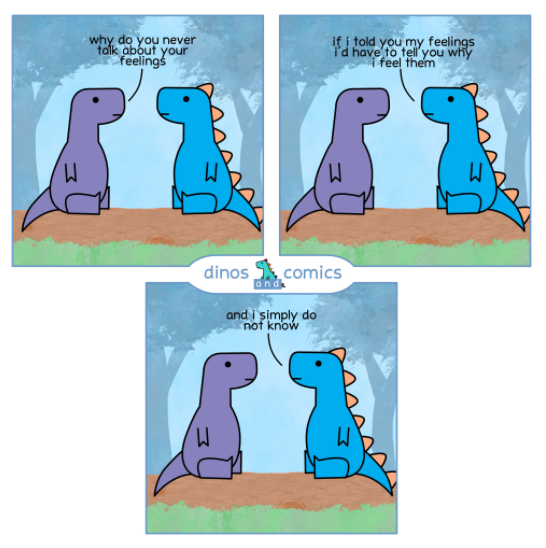“not ready to start again!”, “demotivated”, “the world seems so fragile”, “it’s all a bit scary”
These were just some of the comments to get us going. In classic staffroom style lots of things got a mention and some things were dwelt on longer than others; COVID, of course, then Trump and the storming of the Capitol building with Brexit thrown in for good measure; all things which were playing on people’s minds. All adding to a sense of general unease and “trepidation” for the weeks and months ahead.
Will it be more of the same? Are things going to get worse rather than better? Do we feel motivated? Is it going to be manageable? Are we hopeful? Do we feel positive? 51% optimistic?
Why do we come to the Coffee Break?
People come to the Coffee Break because they are looking for a professional space to make connections, especially now with more remote working and more isolation (even more acute freelancers). We hoped the conversation would leave us feeling supported and motivated heading into 2021.
We talked about the personal and the professional; our New Year’s Resolutions (or maybe better New Week’s or New Day’s or New Lesson Resolutions) including making more connections, being more involved with our own children’s schooling, running and about getting into not just going through the motions and approaching things differently.
Eco-warriors?
One area to make changes could/should be in our treatment of the environment. The Climate Crisis and our possible roles as ELT professionals got a good amount of discussion. The need to normalise the discussion within our classes was discussed; to not wait for the inevitable unit on the environment, to look for ways to engage with the topic in a “non-intrusive and non-eco-warrior” way, to move away from preaching towards asking questions.
ELT Footprint, ELT Sustainable, and Renewable English were mentioned; all are great sources for lesson ideas, courses, inspiration and much more! Hub members are heavily involved in all three. Well worth checking out.
The never-ending rollercoaster
There was general agreement that the rest of the academic year was unlikely to see much change to our situations. We thought that this term would probably be another rollercoaster ride with a little more optimism for the summer term but realistically people are looking at September before things might return to “normal”. The virus is mutating and the situation is unrelenting leaving us all – writers, trainers, teachers and students alike – with varying levels of motivation and tiredness.
Let’s try to make it lighter. Let’s go for mini-resolutions, mini-challenges on weekly, daily or lesson-by-lesson levels within the uncertainty and the associated difficulties with longer term planning. Let’s try to celebrate the little wins and then build up a bank of little successes. Suggestions and ideas started to flow. People talked about the danger of slipping into “just going through the motions” and the associated boredom and disillusionment with the job. We talked about the effect of peer-praise and self-praise. One positive idea was about choosing an area to focus on, play with and extend during our classes, possibly a fortnightly focus; it could be anything: communication, group dynamics, pronunciation and where we just look for opportunities to do little bits of something new. Journaling was suggested as a way to give ourselves perspective and cultivate kinder self-talk where we talk to ourselves as we might talk to a friend or a colleague rather than the habitual sharp criticism. Another idea was about the potential of the TEFL Development Hub creating a space for mutual support through small groups where we could add in a level of accountability for ourselves and other members. Watch this space for news on that!
Two more super-relevant and helpful resources were mentioned here…Views from the Whiteboard and Life Resourceful These are also run by Hub members, check them out when you can.
The sensitive teacher
The talk turned to teenagers and their particular motivation issues often illustrated through a lack of homework and patchy attendance amongst other things. We talked about empowerment and compassion, that the class can a safe space for students to talk about their experiences and to know that we, as their teachers, are there for them. We can add into our plans, perhaps at the beginning of the class, a time to share and the good, the bad and the ugly of their situations. Of course, they may not want to share, but we can open the door for them to do so. Small actions of this kind will, we hoped, build rapport and in turn motivation.
Almost inevitably we looked at the issue of L1 use in the classroom. Students, especially at lower levels, run out of vocabulary pretty quickly, and at this point we want them to feel able to share in any language. We touched on how to work sensitively with emergent language and to think about recycling that language in an appropriate, helpful and constructive way, not like in the following clip…
What’s next?
It was fabulous to see so many people at the Coffee Break… some familiar faces and some first-timers too. See you at the next Coffee Break, 11am (CET) on 21st January. And before then the next webinar on 14th January, at 11.00 (CET) is with Chris Roland where he’ll talk about “Teaching little ‘uns in socially distanced and hybrid classes”, it’s bound to be a cracker!





